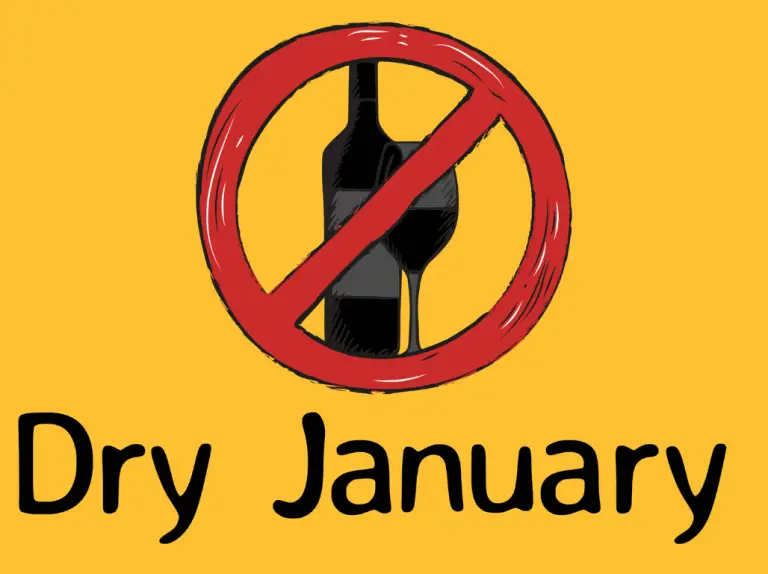There Is A Trend That Has Taken Off With Dry January
If you haven’t heard about Dry January, we’re going to share what it’s all about. We’re sharing because it has taken off and helped thousands feel better in the new year.
What Is Dry January And Why Should You Try It
From Wash Post Every year, tens of thousands of people kick off the new year by taking part in a month-long sobriety challenge known as “Dry January.”
The event is widely viewed as a temporary test of willpower — followed by a return to old drinking habits when the month ends. But according to research, that’s often not what happens.
Studies show that people who participate in Dry January and other sobriety challenges frequently experience lasting benefits. Often, they drink less in the long run and make other sustained changes to their drinking habits that lead to striking improvements in their health and well-being.
Dry January Benefits Of 31 Alcohol Free Days
So why does Dry January seem to have a lasting effect? A month of sobriety, while it can sound daunting, is not so long that it seems impossible. And yet, it is long enough that it provides opportunities to form new habits — like turning down alcohol in social settings, which in the long run can be empowering. And taking a break from alcohol can trigger immediate health benefits, like weight loss, better sleep, and a boost to your mood and energy levels, which can reinforce the new habit.
Experiencing these improvements can motivate you to continue drinking less in the long run, said Richard de Visser, a psychologist at Brighton and Sussex Medical School in England who has studied what happens to people who participate in Dry January.
“It becomes a reinforcing message instead of a punishing message,” he said. “Instead of public health people wagging their fingers and saying, ‘Don’t drink, it’s bad for you,’ people do it and say, ‘I didn’t realize how good I would feel.’ They often don’t realize how much stopping drinking will improve their sleep, or their concentration, or even just their levels of energy in the morning.”
Benefits of Dry January
In one study published in BMJ Open, a team of researchers in London and the United States recruited a group of 94 healthy men and women who were willing to give up alcohol for one month. They compared them to a similar control group of 47 people who continued drinking. Both groups consisted of people who were moderate to heavy drinkers, drinking on average about 2.5 drinks a day.
The researchers found that the people who gave up alcohol for one month had significant improvements in their metabolic health, despite making little or no changes to their diets, smoking or exercise levels. On average they lost about four and a half pounds, their blood pressure dropped, and they had a “dramatic” reduction in their levels of insulin resistance, a marker for Type 2 diabetes risk. They also experienced sharp reductions in cancer-related growth factors — a particularly important finding, the researchers noted, because even low levels of alcohol consumption can increase the risk of many cancers. None of these improvements were seen in the control group.
The researchers followed up with the study participants six to eight months later to see how they were doing. The group that was abstinent for one month had maintained a “significant reduction” in their alcohol consumption, while the control group did not. Using a screening tool that can identify problematic drinking behaviors, the researchers determined that the abstinence group’s drinking habits had changed from “hazardous” to “low-risk,” while the control group’s habits stayed about the same.
Saving Money and Better sleep
In a separate series of studies, de Visser and his colleagues followed thousands of Dry January participants to see if the challenge would lead to long-lasting changes. They found that in general, people who took part in Dry January were still drinking considerably less the following August.
On average, the number of days on which they drank fell from 4.3 days per week before the challenge to 3.3 days per week a half-year later. The amount that they drank on each occasion fell and they got drunk less frequently.
Before Dry January, they got drunk an average of 3.4 times per month. But by the following August that figure had fallen to 2.1 times per month.
Dry January Benefits Include Losing Weight and Feeling Better
Most people who take part in sobriety challenges return to drinking afterward. But many are surprised by the benefits they experience during their month of abstinence. De Visser and his colleagues found that most of the Dry January participants they studied reported saving money, sleeping better, losing weight, and having more energy and a better ability to concentrate. Most also reported that they felt a sense of achievement and gained more control over their drinking. Even people who did not stay alcohol-free the entire month of January reported these benefits.
“The objective of Dry January is not long-term sobriety — it’s long-term control,” said Richard Piper, the CEO of Alcohol Change UK, a British nonprofit that started the month-long challenge a decade ago. “It’s about understanding your subconscious triggers, overcoming those, and learning how good it is to not drink. It gives you the power of choice for the rest of the year.”
More Articles To Read About Dry January Benefits
Sober Curious Benefits To Your Body and Brain
Recognize The Signs Of Problematic Drinking
When Does Social Drinking Become A Problem





















